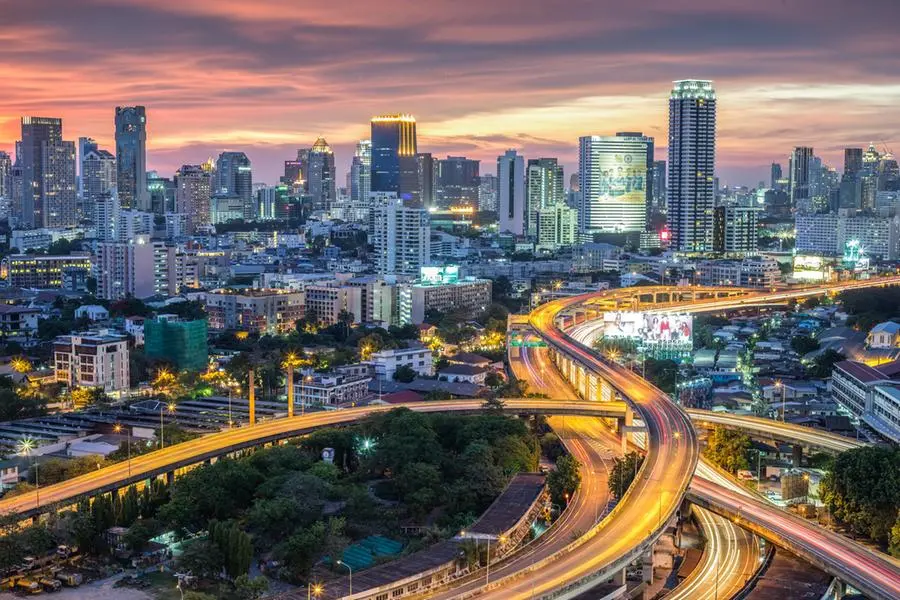With the recognition that higher and more efficient infrastructure investment is essential to unlock faster and more inclusive growth, government is partnering with the private sector to strengthen infrastructure delivery and improve the quality of spending.
“We are leveraging public resources to mobilise private finance and expertise at scale to strengthen service delivery, improve spending effectiveness and drive higher economic growth,” Minister of Finance Enoch Godongwana said on Wednesday.
Presenting the Medium-Term Budget Policy Statement (MTBPS) at a sitting of the National Assembly at the Good Hope Chamber in Parliament, the Minister said capital payments are the fastest growing expenditure item at 7.5% over the medium-term.
In line with the vision contributing towards economic growth and advancing the pillar of growth-enhancing infrastructure, government is shifting the composition of spending from consumption to investment.
The amendments to Public Private Partnerships (PPPs) took effect on 1 June 2025, and these unlock the potential across spheres of government and streamline approvals for smaller projects.
“Three weeks ago, new guidelines on unsolicited bids and fiscal commitments and contingent liabilities were issued and these took effect immediately.
“The unsolicited bid guideline provides a clear structured pathway for the private sector to submit project ideas to government.
“It also provides a framework for reporting and managing of fiscal commitments and contingent liabilities arising from PPP projects,” the Minister said.
Municipal PPP regulations will be amended by 2026.
Leveraging lessons from the Renewable Energy Independent Power Producers (IPPs) project, to streamline planning and procurement, the Department of Transport’s private-sector participation unit is reviving the passenger transport and logistics sector.
“Following strong interest from the freight logistics requests for information, the unit will issue the first rail corridor request for proposal by December 2025, with others following in early 2026.
“The unit has also issued requests for information for investment opportunities in modernising and growing the passenger rail system.
“The Water Partnerships Office is making progress in preparing non-revenue water and reuse projects across municipalities. These will create a robust pipeline for the private sector to co-invest in,” the Minister said.
Government has reconfigured the Budget Facility for Infrastructure (BFI) to run four bid windows annually instead of just one.
Since the reconfiguration, the BFI has received 28 submissions. Nine projects were accepted for detailed analysis.
“Funding to the tune of R4.1 billion is also allocated for disaster relief to fix schools, pipelines, clinics and substations damaged between last year and this year by flooding in KwaZulu-Natal, Mpumalanga, and the Eastern Cape.
“To raise the funding for these BFI projects, a new infrastructure bond will be launched soon to raise a minimum of R15 billion.
“The bond forms part of our efforts to introduce dedicated financing instruments that can mobilise cheaper financing to support our infrastructure agenda,” the Minister said.
Government will also contribute to R2 billion to capitalise the Credit Guarantee Vehicle.
“Initially, the vehicle will support electricity transmission expansion, directly contributing to our efforts at energy security while also driving decarbonisation.
“This heralds a new era in PPPs, where private investment in high-voltage transmission lines is enabled. This is real progress in our move away from merely fixing the power utility to securing power to the grid from a range of sources.
“This is real progress in our move away from merely fixing the power utility to securing power to the grid from a range of sources,” he said.
The Minister said it was a key and innovative part of infrastructure reforms developed with international partners to de-risk private investment without state guarantees.
“We are also committed to simplifying the institutional arrangements across the infrastructure ecosystem. The new Infrastructure Finance and Implementation Support Agency will be operational by March 2026,” he said.
The agency will provide project preparation support to supply the BFI pipeline.
“It will centralise infrastructure finance functions to systematically crowd-in private capital and promote the use of alternative delivery mechanisms.
“Madam Speaker, municipalities are at the forefront of providing essential services. However, many are fraught with capacity constraints that hinder their ability to turn allocated budgets into reliable services.
“It is for these reasons that several reforms have been introduced to urgently remedy this untenable situation,” the Minister said.
Government is piloting a utility reform programme to stabilise and professionalise water and electricity businesses in a few municipalities in Mpumalanga.
“We will use accredited indirect delivery partners such as the Development Bank of Southern Africa (DBSA) and the Municipal Infrastructure Support Agent (MISA) to provide the infrastructure while building municipal capability to do this on their own.
“Honourable members, this is how we will ensure that our goal of public sector investment in infrastructure exceeds the R1 trillion mark over the next three years,” the Minister said. – SAnews.gov.za


Leave a Reply